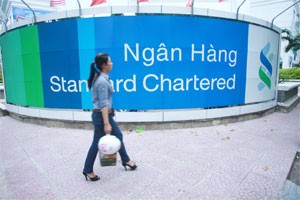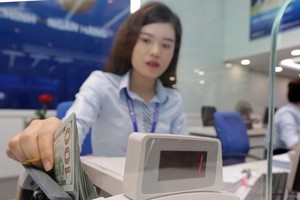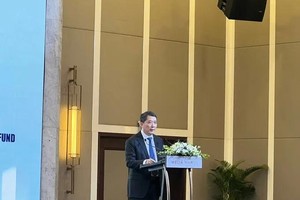Many commercial banks expect that their income this year will come from the investment portfolios and services as the government limits the credit growth to curb inflation.

However, experts expect the central bank will strictly supervise lenders’ investments in an effort to prevent the banking system from being collapsed by fluctuations in the capital market.
“Banking stocks are safe investments during the current difficult time as just a few of lenders agree to either guarantee business-bond issues or buy bonds and shares in businesses,” said Tran Hoang Ngan, vice principle of the University of Economics Ho Chi Minh City.
Many lenders said in the financial report that they want to raise the registered capital this year to buy more stakes in healthy companies, establish joint ventures and subsidiaries.
Tin Nghia Bank announced it would focus on investment and service in an effort to boost the income rate from the two sectors to 10-15 percent of the total income.
The HCMC-based lender planned to optimize its investment portfolios and set up subsidiaries in an effort to employ its asset efficiently.
NamA Bank is set to establish a financial investment fund with a registered capital of VND500 billion (US$25 million), while VietA Bank planned to set up property firms.
HD Bank said it would use the fund that it borrowed from interbank market to buy government, other bank and business bonds.
Ly Xuan Hai, general director of Asia Commercial Bank, said as the stock market continued to retreat this year, his bank would restructure the investment portfolios by keeping stakes in good companies only.
Hai expected that the investment activities of lenders would have to cope with many tough challenges this year as property and stock markets remained quiet due to the government’s tight monetary policy.
Experts noticed banks’ investment portfolios were also restricted by the Law on Credit Institutions, regulating lenders’ stake in businesses, investment funds and other banks must not excess 11 percent of their registered capital.
The State Bank of Vietnam is drafting a circular, which will forbid commercial banks to invest in more than two credit institutions and limit their investment to 5 percent of the registered capital of the lenders that they invest in.
Interbank market
With investment portfolios being restricted, many banks put their earning expectation into interbank market, which has offered an interest rate of 18-20 percent per annum since the central bank tightened the monetary policy early this year.
Vietnam's central bank raised the rate it offers for loans via open market operations by 100 basis points to 14 percent on Wednesday, according to an announcement seen by Reuters.
The hike in the reverse repurchase rate followed increases in two other policy rates, the refinance rate and the discount rate, announced on Friday after annual inflation in April reached a 28-month high of 17.51 percent.
The central bank's last increase in the reverse repo rate, a 100 basis point move on April 1, accompanied an increase of the same magnitude in the refinance rate.
Friday's rate hikes were announced after the two open market operations sessions and markets and government offices were closed from Saturday through Tuesday for a national holiday.
The government have tightened several rates multiple times since they started tightening monetary policy in mid-February. The government has also vowed to rein in spending to tame the highest inflation among major Asian economies.
“Banks’ investments were among the main causes of the global economic recession. Therefore the central bank has to strictly supervise local lenders’ investments in an effort to prevent the banking system from being collapsed by fluctuations in the capital market,” said Dr. Tran Du Lich, member of National Advisory Council for Financial and Monetary Policies.

















)

)




